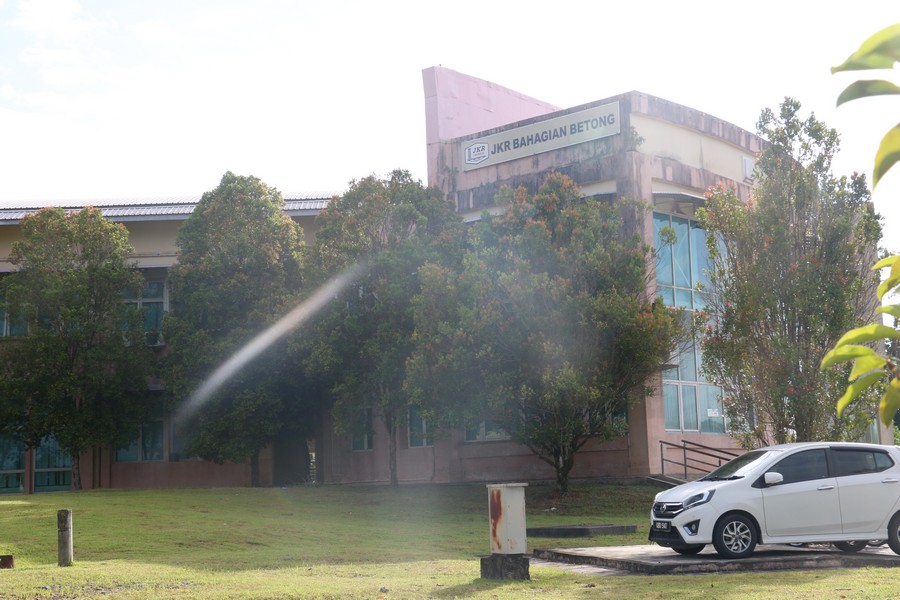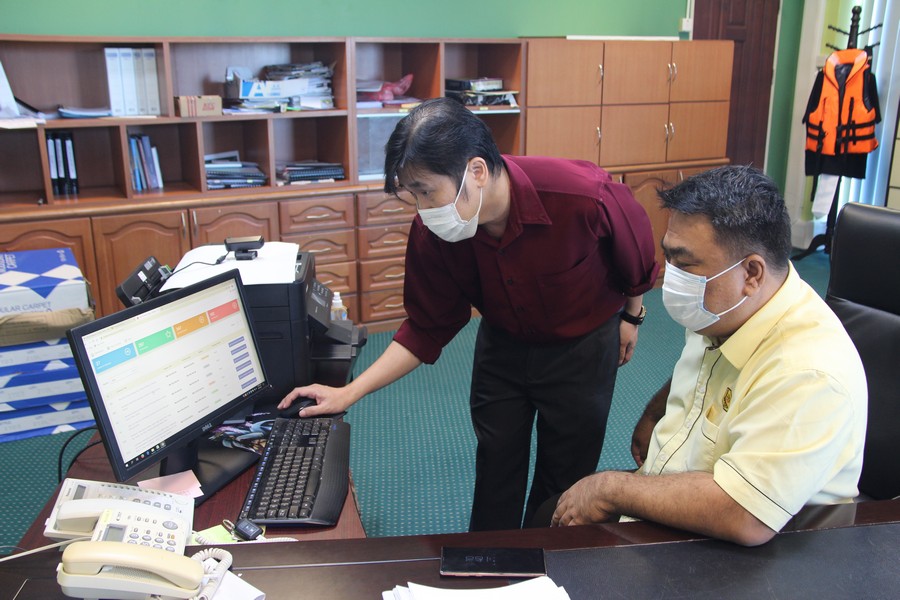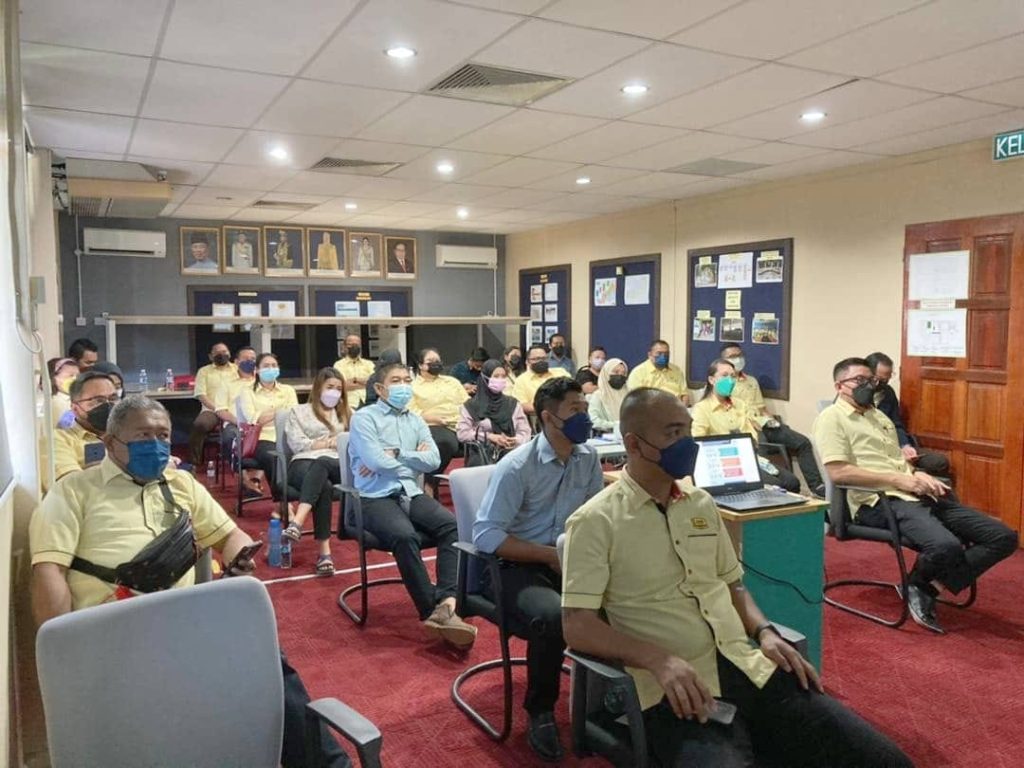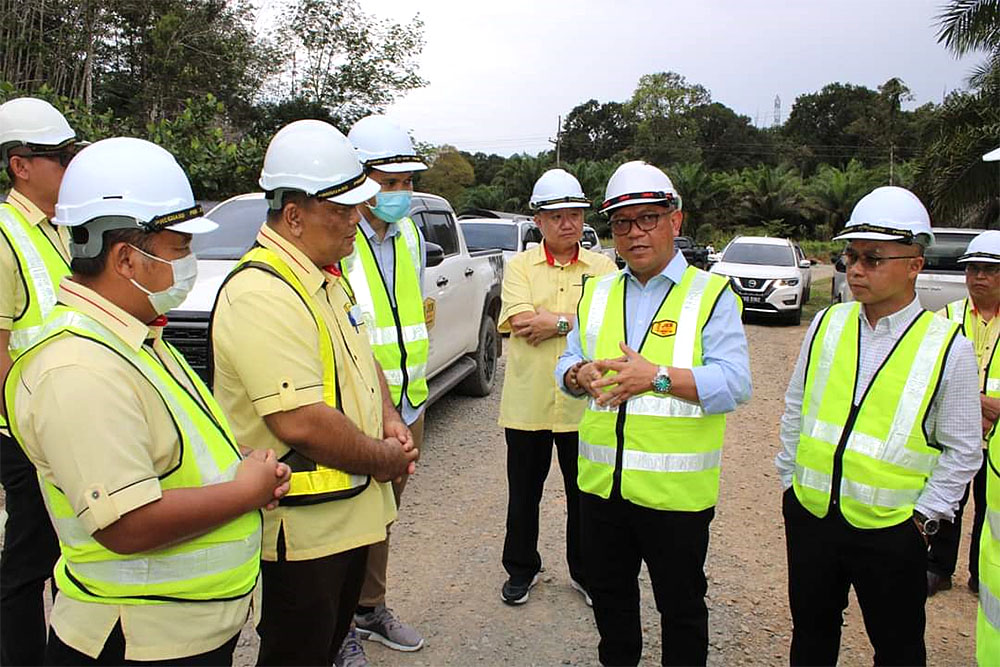Betong Division constituted on March 26, 2002.
Betong has a total size of 4,181km, a population of approximately 122,200 people and currently consists of four (4) districts: Betong, Pusa, Saratok and Kabong.
On 26 March 2002, Public Works Department Betong Division (JKR Betong) administrative division was established along with the formation of Betong Division. The formation was a territorial split within JKR Sri Aman’s previous administration.

JKR Betong made contributions in the implementation of several projects in Betong, as well as the development of roads, buildings, jetty, piers, pipe systems, water supply systems and water purifying facilities.
It was managed by the Divisional Engineer and supported by a variety of personnel types ranging from professionals to support groups.
JKR Betong managed to implement values and ethics proposed by JKR Sarawak by practicing 7 core values in effort to empower growth in delivering civil services; professionalism, integrity, caring, innovation, teamwork, sense of urgency and ownership and result-oriented.

A variety of actions were conducted in order to foster pure values in the JKR Betong, as listed below:
- JKR Betong had organized a few programmes, such as Sambutan Hari Gawai, Chinese New Year, Hari Raya Puasa, Christmas Day, and so on, through Kelab Sosial dan Sukan (SOKANJAYA) Club.
- With the collaboration of Pertubuhan Akhlak Che Zhong Khor Betong, JKR Betong also implemented Corporate Social Responsibility (CSR) programmes. This program engaged 30 participants from various villages and longhouse communities in Betong.
- Additional events such as blood donation and a friendly football match involving Betong SOKANJAYA club were also organized.

Next, JKR Betong also had taken initiatives to enhance the integrity and to eliminate the potential issues such as delivering an integrity briefing during the handover ceremony of the Letter of Acceptance (LoA) to the contractor.
An effort to assign an Integrity Officer (IO) at each branch and divisional office and suggested a new guideline for project automobile management (for project supervision) for government-funded projects was also an action taken by JKR Betong to improve integrity of the organization.
Integrity agreement being proposed by Transparency International is also one of the methods in preventing corruption in civil service contracts. It is a document that must be signed by all essential parties in order for the integrity aspect to be met and any corruption element to be avoided.

Over the past three (3) years (2020 – 2022), JKR Betong has sought to improve effective services to the public and stakeholders.The following are the efforts involved:
- Founded the Digital Development Plan (DDP) system, which serves as a digital information hub for each Public Works Department (PWD) Divisional Office.
- Keep on track with JKR Sarawak Engineering Study Portal (ESP), which acts as a geospatial information center for JKR Sarawak’s managers, planners, and designers throughout the Pre-Planning Stage of Project Delivery and decision-making.
- Applied digitalisation in the organization by referring to JKR Dash system for project status tracking since under the supervision of JKR Sarawak, project officers will update the project progress, allowing users to know the most recent state of the development.
- Obtain certification under MSISO9001:2015 Quality Management System and MSISO55001:2014 Asset Management System (AMS) and establishment of Divisional Manual of Instruction (DMOI), Program Management Guidelines (PMG) and Project Execution Plan (PEP) for Minor Projects Programme in order to offered high impact and people-centric project.
- Carry out continuous competency analysis and courses to boost staff skills and knowledge in monitoring projects, regulate the department’s KPI achievement through Balanced Scorecard, and participate in internal training courses to uphold the technical knowledge of the staff.
Thus, JKR Betong is constantly endeavouring to execute community-involved activities and to be proactive in generating development strategies which are beneficial to the public.




